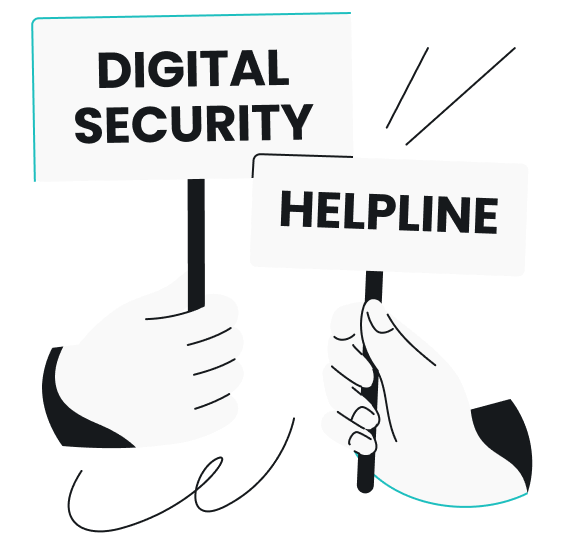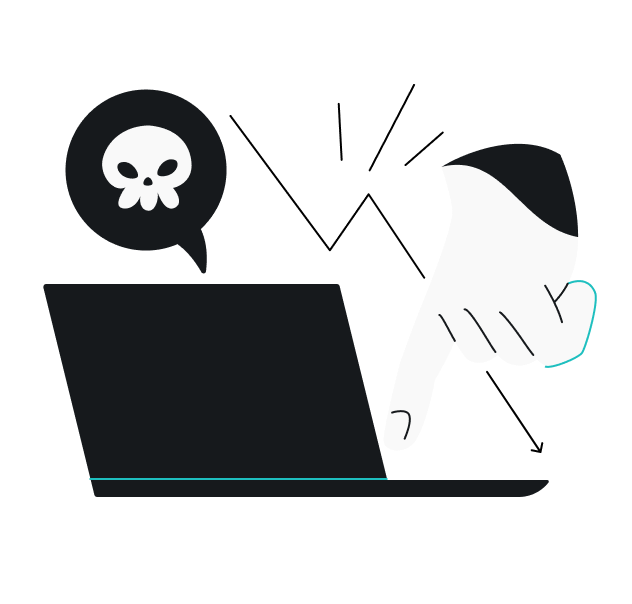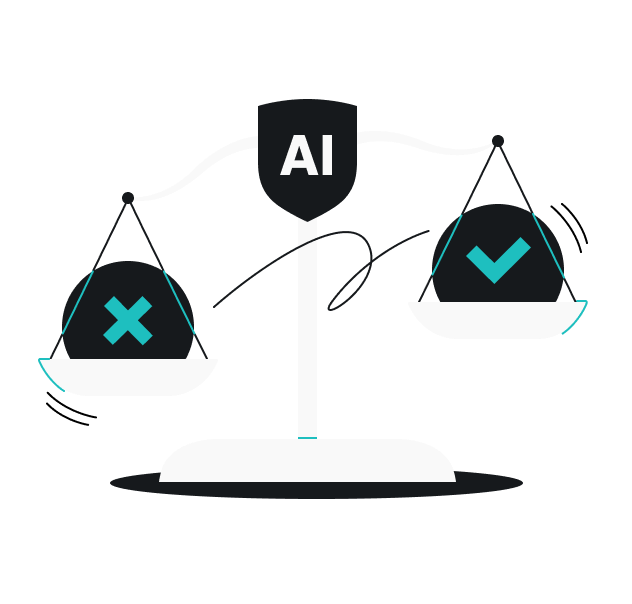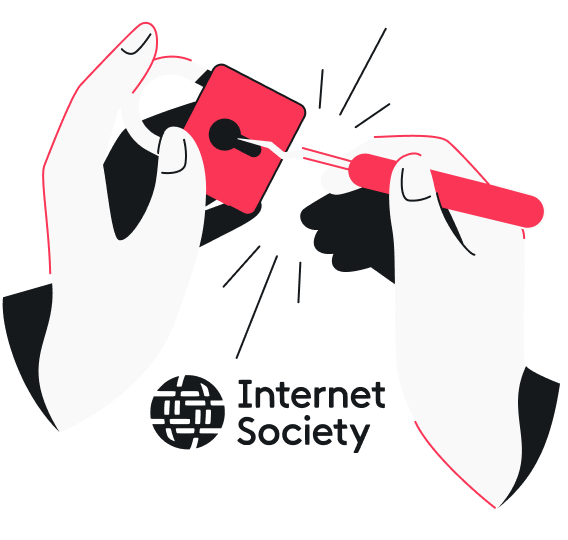Featuring: Mohammed Al-Maskati, Director, Access Now Digital Security Helpline
Governments worldwide are expanding surveillance powers — in some cases actively attempting to silence activists, journalists, and human rights defenders. With civic space shrinking and resources dwindling, vulnerable individuals may be exposed to surveillance, phishing attacks, and other online threats.
To better understand the risks vulnerable groups and activists face online today, we spoke with Mohammed Al-Maskati, Director of Access Now’s Digital Security Helpline.
Mohammed Al-Maskati is the Director of Access Now’s Digital Security Helpline. Before joining Access Now, he was a Digital Protection Coordinator at Front Line Defenders, where he focused on supporting human rights defenders from the Middle East and North Africa. Previously, he founded and was president of the Bahrain Youth Society for Human Rights (BYSHR). In many of these roles, he has helped different communities to stay safe online, promoted awareness and education — including in often-ignored languages like Arabic and Persian — and supported activists to prevent and mitigate digital attacks. This includes highly surveilled countries where digital security is often a life-or-death situation.
Al-Maskati was shortlisted for Index on Censorship’s 2019 edition of the Freedom of Expression Awards, as well as the 2020 Security Serious Unsung Heroes Awards. He was a member of the panel of experts for the Dutch Government Tulip Prize for Human Rights 2021.
What are the challenges?
According to Mohammed, around the world, governments are increasingly using powerful surveillance tools to monitor human rights defenders and journalists — often pushing the boundaries of the law to silence dissent and restrict freedoms. Civil society actors are frequently the targets of sophisticated digital threats, including spyware and highly tailored phishing attacks.
Here’s Mohammed’s insight into the gravity of these challenges:
“These threats are unfolding against a broader backdrop of shrinking civic space and rising restrictions on fundamental rights. Activists, journalists, and human rights defenders are singled out for their essential work, yet they often have fewer resources and limited political backing, which makes them even more vulnerable. Meanwhile, the tech companies are not doing enough to protect their users, which puts everyone’s digital rights at risk. Confronting this reality requires not only providing direct protection and technical support but also raising public awareness and building cross-sector solidarity to defend basic rights such as freedom of expression, association, and privacy.”
Digital Security Helpline: free aid for civil society around the world
In light of these growing challenges, Access Now established the 24/7 Digital Security Helpline — a lifeline for people at risk. The Helpline focuses on helping people safeguard their devices, protect sensitive information, and enables them to continue their vital work online despite digital threats.
What services does the Digital Security Helpline provide?
According to Mohammed, the primary mission of Access Now’s 24/7 Digital Security Helpline is to provide high-quality, real-time support to at-risk activists, journalists, and civil society actors around the world. At the core of this work are Security Incident Handlers — the first line of response — who carefully assess each request and design tailored solutions suited to the beneficiary’s needs, capacities, and level of digital knowledge. Beyond fixing immediate problems, the team also offers guidance and counseling that empowers people to adopt stronger digital practices for the long term.
In addition to urgent interventions, the Helpline delivers more comprehensive support. This includes helping beneficiaries analyze, document, and expose advanced cyberattacks such as spyware or targeted phishing. Just as importantly, the team invests in prevention — building resilience by improving beneficiaries’ technical skills and confidence. This approach ensures that individuals and organizations not only resolve immediate threats but also develop the ability to protect themselves more effectively in the future.
Various forms of support for vulnerable groups
Mohammed emphasizes that Access Now’s support takes many different forms in various cultural contexts. In regions like Eastern Europe and Central Asia, the team often delivers emergency responses to help counter authoritarian and repressive regimes. This includes assisting media organizations in assessing risks to their staff and infrastructure, as well as investigations, such as uncovering the use of spyware against the independent Russian outlet Meduza and a group of exiled Russian, Belarusian, and Israeli journalists and activists.
In the Middle East and North Africa, Access Now provides tailored support to groups facing heightened risks, including human rights defenders engaged in accountability work and documenting violations. The organization also works globally to help LGBTQ+ people and women human rights defenders stay safe online — an effort that is especially critical in restrictive environments like those in Sub-Saharan Africa.
The impact of Access Now’s work
As Mohammed explains, the scale of the Helpline’s work is substantial. In 2024 alone, it received more than 4,000 requests for assistance, each varying in complexity and urgency. Every request goes through a triage process: an initial two-hour response to gather more details, verification that the requester belongs to civil society, and confirmation that the Helpline can provide the needed support. From there, the team works closely with the beneficiary to design and implement a customized solution. Feedback from beneficiaries is actively sought and incorporated, ensuring the Helpline continually improves its methods and remains responsive to the evolving challenges of digital security.
According to Mohammed, beyond the Helpline, Access Now drives broader change through strategic advocacy, grassroots grantmaking, and global convenings like RightsCon. Guided by a “grassroots-to-global” approach, Access Now works hand in hand with local communities and activists to amplify their voices, strengthen digital resilience, and push back against the misuse of technology that threatens fundamental rights such as privacy, free expression, and freedom of association.
Driving change together: how businesses can help
Confronting such issues often depends on strong collaboration and shared action. Mohammed highlights how businesses can contribute to this cause:
“Companies should support the ecosystem of organizations and help desks that work to keep civil society safe. Sharing digital threat information and assigning adequate staff and resources to address security concerns are crucial to keep people and communities safe. Making services and security tools available free of charge is also a key way to support civil society organizations, which are often cash-strapped and currently facing a more complex financial environment. Besides responding to the evolving needs and concerns from civil society, it’s worth seeing protection of users at risk as a cross-cutting concern, instead of siloing it in their teams in charge of human rights or humanitarian work. The best ways the companies and businesses can help are by connecting the dots across their different portfolios, for example, bringing together a combination of cybersecurity expertise, sharing information and threat intelligence to support accountability efforts, and providing resources to help increase civil society cybersecurity response.”
Building a safer and freer internet for everyone
In today’s interconnected world, protecting vulnerable voices online is more than a technical challenge — it is a collective responsibility. Safeguarding security and openness for all demands that governments, businesses, and civil society work hand in hand to uphold fundamental rights. By strengthening transparency, accountability, and solidarity, we can build an internet where activists, journalists, and everyday users are free to speak, safe to connect, and empowered to shape a more just and inclusive future.




